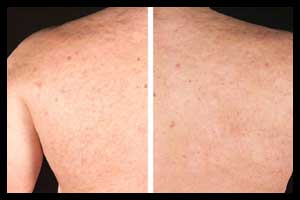- Home
- Editorial
- News
- Practice Guidelines
- Anesthesiology Guidelines
- Cancer Guidelines
- Cardiac Sciences Guidelines
- Critical Care Guidelines
- Dentistry Guidelines
- Dermatology Guidelines
- Diabetes and Endo Guidelines
- Diagnostics Guidelines
- ENT Guidelines
- Featured Practice Guidelines
- Gastroenterology Guidelines
- Geriatrics Guidelines
- Medicine Guidelines
- Nephrology Guidelines
- Neurosciences Guidelines
- Obs and Gynae Guidelines
- Ophthalmology Guidelines
- Orthopaedics Guidelines
- Paediatrics Guidelines
- Psychiatry Guidelines
- Pulmonology Guidelines
- Radiology Guidelines
- Surgery Guidelines
- Urology Guidelines
Hidradenitis suppurativa patients at increased risk for schizophrenia

Tel Aviv, Israel: Patients with hidradenitis suppurativa (HS) are at an increasingly higher risk of developing schizophrenia, according to a recent study published in the Journal of the European Academy of Dermatology and Venereology. The risk is more pronounced in patients aged between 30-69 years and smokers.
Hidradenitis suppurativa is a painful, long-term skin condition that causes abscesses and scarring on the skin. The exact cause of hidradenitis suppurativa is unknown, but it occurs near hair follicles where there are sweat glands, usually around the groin, buttocks, breasts, and armpits. The disease causes substantial psychosocial impediments with increased suicidal risk. Yet data on HS associated psychiatric effects have not been sufficiently studied in population-based studies.
D. Tzur Bitan, Tel Aviv University, Tel Aviv, Israel, and colleagues sought to investigate the association between HS and schizophrenia, a major psychiatric disease, in a nationwide population‐based study in Israel.
The researchers used data provided by Clalit Health Services, the largest managed healthcare company in Israel. The study included patients diagnosed with HS (n=4191) and age- and sex-matched control patients (n=20,941). Adjusting for smoking status and demographic factors, multivariate binary logistic regression was used to assess the association between HS and schizophrenia.
Read Also: Hidradenitis Suppurativa management: North American clinical management guidelines
Key findings of the study include:
- The analysis revealed a tenfold increase in the prevalence of schizophrenia in patients with HS compared with patients in the control group (1.4% and 0.4% respectively).
- There was more than a threefold increase in prevalence observed in the 30 to 49 age group (1.8% and 0.5%, respectively), and a fourfold increase was demonstrated in the 50 to 69 age group (2% and 0.5%, respectively).
- Schizophrenia in patients with HS was also associated with lower socioeconomic status and smoking.
- In multivariate analysis, HS was found to be independently and positively associated with schizophrenia.
- Schizophrenia was also positively associated with smoking, socioeconomic status, and age.
Read Also: New drug could be “game changer” in treatment of schizophrenia
"During the assessment of patients with HS, screening for several mental illnesses is of great importance, as comorbid psychiatric disorders may affect treatment outcomes," concluded the authors.
The study, "Hidradenitis suppurativa and schizophrenia: a nationwide cohort study," is published in the Journal of the European Academy of Dermatology and Venereology.

Disclaimer: This site is primarily intended for healthcare professionals. Any content/information on this website does not replace the advice of medical and/or health professionals and should not be construed as medical/diagnostic advice/endorsement or prescription. Use of this site is subject to our terms of use, privacy policy, advertisement policy. © 2020 Minerva Medical Treatment Pvt Ltd